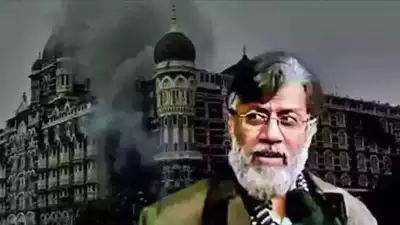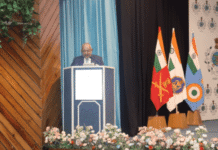Washington/New Delhi, April 11: In a landmark move signaling international cooperation on counter-terrorism, the United States has extradited Pakistani-origin Canadian national Tahawwur Hussain Rana to India to stand trial for his alleged role in the 2008 Mumbai terror attacks. The extradition, executed by U.S. authorities on April 9, marks a significant step forward in delivering justice to the victims of one of the deadliest terror strikes in India’s history.
Rana, 64, faces 10 criminal charges in India, including conspiracy to commit murder, participation in a terrorist act, and forgery, for allegedly assisting the Pakistan-based terrorist group Lashkar-e-Tayyiba (LeT) in the planning and execution of the coordinated attacks. The assaults, which took place over four harrowing days from November 26 to 29, 2008, killed 166 people, including six American citizens, and injured hundreds more.
According to Indian prosecutors, Rana allegedly facilitated the operations of David Coleman Headley (born Daood Gilani), his childhood friend and a U.S. citizen, who was instrumental in conducting surveillance of potential targets in Mumbai on behalf of LeT. Rana is accused of using his immigration services firm as a front, helping Headley open a fictitious office in Mumbai, despite knowing that Headley had no immigration experience. Documents prepared and submitted for visas and business approvals were allegedly falsified under Rana’s direction.
During multiple meetings in Chicago between 2006 and 2008, Headley allegedly updated Rana about LeT’s plans and his reconnaissance activities, which included mapping out locations like the Taj Mahal Palace Hotel, Chhatrapati Shivaji Terminus, and the Chabad House, all of which would later become attack sites.
Investigators say Rana’s complicity continued even after the attacks. In intercepted conversations with Headley, Rana allegedly praised the nine slain attackers and remarked that India “deserved it,” further stating that the attackers should be posthumously awarded Pakistan’s highest military honor—the Nishan-e-Haider.
Rana had earlier been convicted in the U.S. in 2013 for providing material support to LeT and conspiring in a separate terror plot in Copenhagen. He was sentenced to 14 years in prison in the U.S. for those crimes. His extradition to India follows nearly five years of legal proceedings that began in June 2020, when India submitted its formal request.
After multiple layers of judicial review, including a 2023 certification by a U.S. magistrate judge, a denial of habeas corpus in federal district court, an affirmation by the Ninth Circuit Court of Appeals, and a rejection by the U.S. Supreme Court in January 2025- Rana’s extradition was cleared. On April 7, the U.S. Supreme Court denied a final petition to stay his surrender.
The U.S. Marshals Service handed over custody of Rana to Indian authorities, completing the formal transfer. The case was coordinated by the U.S. Department of Justice’s Office of International Affairs with support from the FBI’s legal attaché in New Delhi.
India’s National Investigation Agency (NIA) is expected to take the lead in prosecuting the case, which is likely to draw considerable attention as it revisits the legal and emotional scars left by the 26/11 attacks. For the families of victims and survivors, Rana’s arrival on Indian soil represents a long-awaited step toward accountability.





